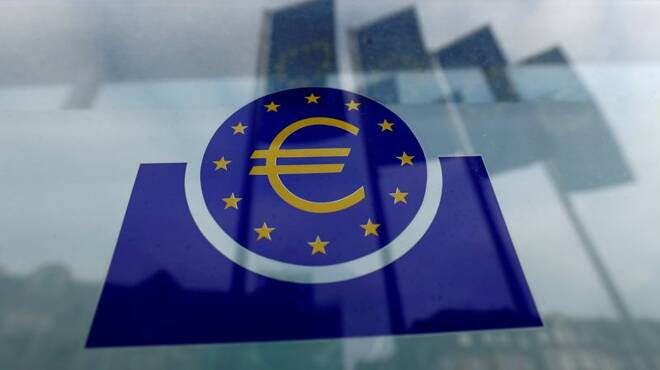Advertisement
Advertisement
ECB policymakers caution against tightening policy too fast
By:
FRANKFURT (Reuters) - The European Central Bank must keep raising rates but needs to avoid overtightening as that could destroy productive capacity and deepen a recession, ECB board member Fabio Panetta said on Monday.
FRANKFURT (Reuters) -The European Central Bank needs to keep raising interest rates but must not move too fast to avoid unnecessarily exacerbating a downturn, two policymakers said on Monday, with one of them making the case for slowing the pace of policy tightening soon.
The ECB has raised rates by a combined 200 basis points since July, its fastest pace of tightening on record, and market pricing suggests it is just over halfway done with the next move in the form of a 50- or 75-basis-point hike coming in December.
Fabio Panetta, a member of the ECB’s board, argued that excessive hikes could deepen a downturn as policy tightening is already set to cut more than one percentage point from GDP growth each year until 2024.
“If we were to compress demand in an excessive and persistent manner, we would face the risk of also pushing output permanently below trend,” Panetta said in a speech in Florence.
“For as long as inflation expectations remain anchored, monetary policy should adjust but not overreact,” he said. “The uncertainty surrounding supply and demand dynamics requires us to remain prudent as regards how far the adjustment needs to go.”
While policymakers argue that inflation expectations are by and large “anchored” near the ECB’s 2% target, a key market-based long-term indicator stands at 2.36% while the European Commission’s latest forecast puts 2024 inflation at 2.6%, indicating upside risks.
Cypriot policymaker Constantinos Herodotou, meanwhile, argued that a slowdown in the pace of hikes could soon come.
“The closer we are to the neutral range of interest rates … the rate of increase in interest rates may need to be adjusted to ensure that we have sufficient evidence from the real economy over the effects of monetary policy,” he told Greek newspaper Naftemporiki.
The neutral rate, the level at which growth is neither stimulated nor slowed, is seen by economists somewhere between 1.5% and 2%, suggesting that the ECB’s 1.5% deposit rate is already at the lower edge of many estimates.
In a notable concession to policy hawks, Panetta argued that tightening could even reach a level where the ECB would restrict growth, but this needs solid justification.
“Being prudent does not rule out the possibility of us having to move from withdrawing accommodation to restricting demand,” Panetta said. “But in the absence of clear second-round effects, we would need convincing evidence that the current shocks are likely to keep having a more adverse effect on supply than on demand.”
(Reporting by Balazs Koranyi;Editing by Francesco Canepa, Emelia Sithole-Matarise and Paul Simao)
About the Author
Reuterscontributor
Reuters, the news and media division of Thomson Reuters, is the world’s largest international multimedia news provider reaching more than one billion people every day. Reuters provides trusted business, financial, national, and international news to professionals via Thomson Reuters desktops, the world's media organizations, and directly to consumers at Reuters.com and via Reuters TV. Learn more about Thomson Reuters products:
Did you find this article useful?
Latest news and analysis
Advertisement
